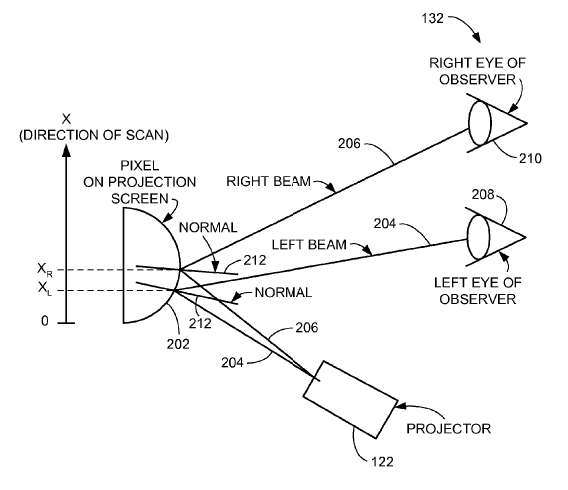Prognostication
January 3, 2011
It's the start of a
new year, so it's a time for looking back. It's also a time for making predictions for the new year and for the future in general. There's a
quotation ascribed to the baseball great,
Yogi Berra, as follows:
"It's tough to make predictions, especially about the future."
Variants of this quotation are credited to others, including
Niels Bohr, who is referenced by at least one source as
saying
"Prediction is very difficult, especially about the future."
Knowing the public preference of sports over science, I predict that in a few decades the quotation will be known as Yogi Berra's alone.
In a
previous article (Flying Cars and Four Day Work Weeks, December 14, 2010), I mentioned predictions of the early and mid-
twentieth century that didn't ring true. Many of my own predictions have proven to be wrong. I
predicted that the hit television series, "
The Big Bang Theory," would be a flop. After all, how many
nerd jokes could there be? I had the same prognosis for "
All in the Family" many decades prior to that. I thought the pseudo-
hippie vs blue-collar premise of son-in-law-Michael vs father-in-law-Archie was too trite to be sustainable. I guess I'm not plugged into popular culture.
One method of prediction is a
survey. Those of you who lived through the
management fad known as
Total Quality Management (TQM) know that surveys were central to the process. After all, you weren't selling
products, you were selling
solutions, so you needed to know what your customers and other "stakeholders" thought. The survey approach is what
IBM did late last year. It asked 3,000 of its scientists, who are arguably among the best industrial scientists in the world, to predict future technology products. You can expect that the predicted products would be in IBM's interest area, so no flying cars; but also, no real surprises.
The IBM predictions for the very near future included cities heated by
servers, something that's actually being done at the building-level today. They must be expecting a lot more servers and that server efficiency will not improve. Also expected were advances in
lithium-air battery technology and traffic monitoring technologies. IBM has launched a pilot project in
Singapore in which
sensors are used to monitor and manage transportation and energy systems. Once again, no stretch there.
There was also a prediction of
three-dimensional holographic displays on mobile devices, so you can video chat with a close representation of a caller. IBM and
Nokia are working on such displays presently, and
Apple has just been issued a patent on 3D display technology.[2] The Apple 3D display uses a textured screen that directs slightly different images to the left and right.[3] No glasses are required to perceive the 3D effect.

Figure 2 of US Patent Application 11/533,580, "Three-Dimensional Display System."
A logical evolution of the survey technique in the Internet age is the so-called information futures or
prediction market. In such markets, you essentially place bets on your predictions. Since real money is often involved, betters are likely to be very analytical about their wagers. Research indicates that the ensemble of bets is about as accurate as "
think tanks" in accuracy of prediction. This idea of the "
wisdom of the crowd" goes back at least as far as the
1906 experiment by
Francis Galton in which 800 people tried to guess the weight of meat that would be produced by an ox displayed at a livestock fair. The mean of these guesses was within a pound of the actual weight of 1,197 pounds. There's a web site with links to many futures markets web sites.[4]
The
Woodrow Wilson Center has a
Science and Technology Innovation Program (STIP) Prediction Marketplace.[5] Although it doesn't appear to be very active, it does have some interesting
predictions, as listed below.
• CERN beats Fermilab two-to-one for the discovery of the Higgs Boson.
• Navier–Stokes existence and smoothness and P versus NP are running neck-to-neck as the next Millennium Prize winner.
• No one has any idea when the average price for commercially available DNA synthesis will fall to one cent per base pair.
References:
- Nathan Eddy, "IBM Predicts Holographic Phones, Air-driven Batteries," Eweekeurope, December 24, 2010.
- Richard Gray, "Apple patent reveals plans for holographic display," Telegraph (UK), December 26, 2010.
- Christoph H. Krah, "Three-Dimensional Display System," US Patent Application 11/533,580, Filed Sep 20, 2006.
- Marcus P. Zillman, Information Futures Markets Web Site.
- Science and Technology Innovation Program (STIP) Prediction Marketplace
Permanent Link to this article
Linked Keywords: New Year; Yogi Berra; quotation; Niels Bohr; twentieth century; The Big Bang Theory; nerd; All in the Family; hippie; blue-collar; survey; management fad; Total Quality Management; TQM; IBM; servers; lithium-air battery; Singapore; sensors; three-dimensional; 3D; holographic display; Nokia; Apple; US Patent Application 11/533,580; Three-Dimensional Display System; prediction market; think tank; wisdom of the crowd; Francis Galton; Woodrow Wilson Center; Science and Technology Innovation Program (STIP) Prediction Marketplace; CERN; Fermilab; Higgs Boson; Navier–Stokes existence and smoothness; P versus NP; Millennium Prize; DNA synthesis; base pair.